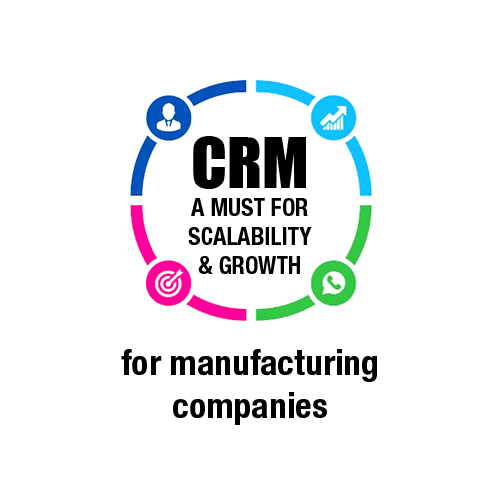 CRM for manufacturing companies
CRM for manufacturing companies
Programming & Tech
CRM development for manufacturing companies
Product Info
CRM development for manufacturing companies involves creating a customized system that helps manage customer interactions, streamline sales processes, and improve overall business performance. It includes selecting a suitable CRM platform, tailoring it to manufacturing requirements, integrating with existing systems, and implementing features such as lead management, sales and order management, customer service and support, reporting and analytics, mobile accessibility, and user training. The goal is to enhance customer relationships, increase sales efficiency, and drive business growth through data-driven decision-making.Description
-
CRM (Customer Relationship Management) development for manufacturing companies is crucial for managing and improving customer interactions, sales processes, and overall business performance. Here are some key considerations and steps to follow when developing a CRM system specifically tailored for manufacturing companies:
-
Identify specific requirements: Understand the unique needs and challenges of manufacturing companies. Consider areas such as lead management, order tracking, inventory management, after-sales service, warranty management, and customer support.
-
Select a CRM platform: Choose a CRM platform that aligns with your manufacturing company's requirements. There are several options available, including both cloud-based and on-premises solutions. Popular CRM platforms include Salesforce, Microsoft Dynamics 365, Zoho CRM, and HubSpot CRM.
-
Customize the CRM: Tailor the CRM system to meet your manufacturing company's specific needs. Configure the system to capture and manage key data points, such as customer information, sales orders, production schedules, inventory levels, and customer support tickets.
-
Integration with existing systems: Integrate the CRM system with other existing software and systems within your manufacturing company, such as ERP (Enterprise Resource Planning) systems, inventory management systems, and production planning systems. This integration ensures seamless data flow and eliminates duplicate data entry.
-
Lead and opportunity management: Implement features that enable effective lead management, tracking opportunities, and converting them into sales. This includes lead capture, lead scoring, pipeline management, and forecasting.
-
Sales and order management: Develop functionalities to manage the entire sales process, from quoting and pricing to order processing and fulfillment. This may include generating sales quotes, tracking order status, managing production schedules, and integrating with billing and invoicing systems.
-
Customer service and support: Incorporate features for managing customer inquiries, service requests, and after-sales support. This can include ticketing systems, knowledge bases, warranty management, and customer self-service portals.
-
Reporting and analytics: Implement robust reporting and analytics capabilities to track sales performance, customer satisfaction, and other key metrics. This helps manufacturing companies make data-driven decisions and identify areas for improvement.
-
Mobile access: Ensure that the CRM system is accessible on mobile devices, allowing sales representatives, field service technicians, and other personnel to access customer information, update records, and manage tasks while on the go.
-
User training and adoption: Provide comprehensive training to employees to ensure smooth adoption and effective utilization of the CRM system. Encourage user engagement and provide ongoing support to address any issues or questions.
-
Continuous improvement: Regularly review and refine the CRM system based on feedback from users and changing business needs. Leverage the CRM system's flexibility to accommodate new requirements and optimize processes over time.
Remember that CRM development is an iterative process, and it's important to involve key stakeholders from different departments within your manufacturing company to ensure the system meets their needs.
-

